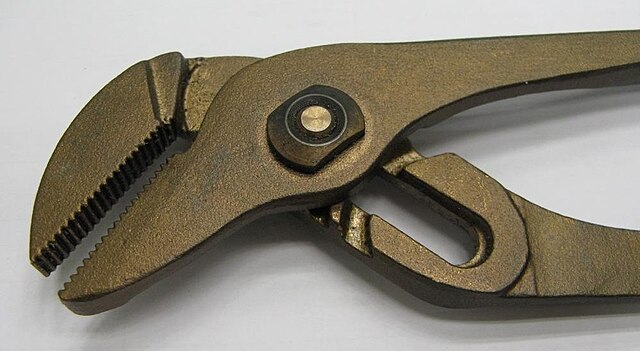Beryllium copper (BeCu), also known as copper beryllium (CuBe), beryllium bronze, and spring copper, is a copper alloy with 0.5–3% beryllium. Copper beryllium alloys are often used because of their high strength and good conductivity of both heat and electricity. It is used for its ductility, weldability in metalworking, and machining properties. It has many specialized applications in tools for hazardous environments, musical instruments, precision measurement devices, bullets, and some uses in the field of aerospace. Beryllium copper and other beryllium alloys are harmful carcinogens that present a toxic inhalation hazard during manufacturing.
Example of a non-sparking tool made of beryllium copper
Beryllium is a chemical element; it has symbol Be and atomic number 4. It is a steel-gray, strong, lightweight and brittle alkaline earth metal. It is a divalent element that occurs naturally only in combination with other elements to form minerals. Gemstones high in beryllium include beryl and chrysoberyl. It is a relatively rare element in the universe, usually occurring as a product of the spallation of larger atomic nuclei that have collided with cosmic rays. Within the cores of stars, beryllium is depleted as it is fused into heavier elements. Beryllium constitutes about 0.0004 percent by mass of Earth's crust. The world's annual beryllium production of 220 tons is usually manufactured by extraction from the mineral beryl, a difficult process because beryllium bonds strongly to oxygen.
Beryllium
Beryllium ore with 1US¢ coin for scale
Emerald is a naturally occurring compound of beryllium.
Louis-Nicolas Vauquelin discovered beryllium





